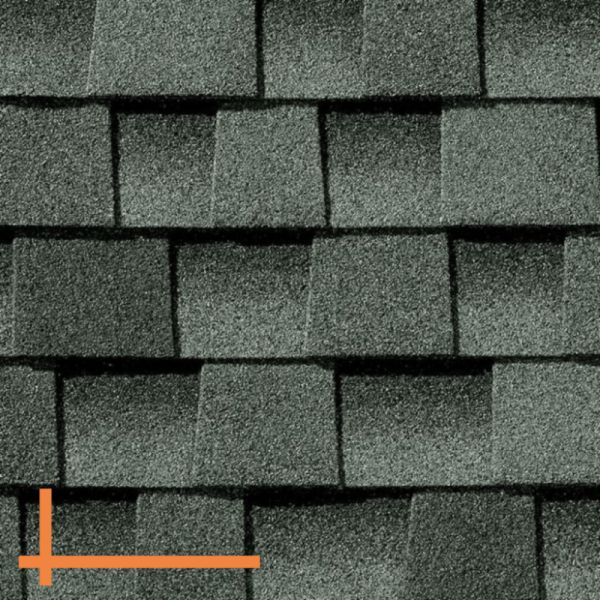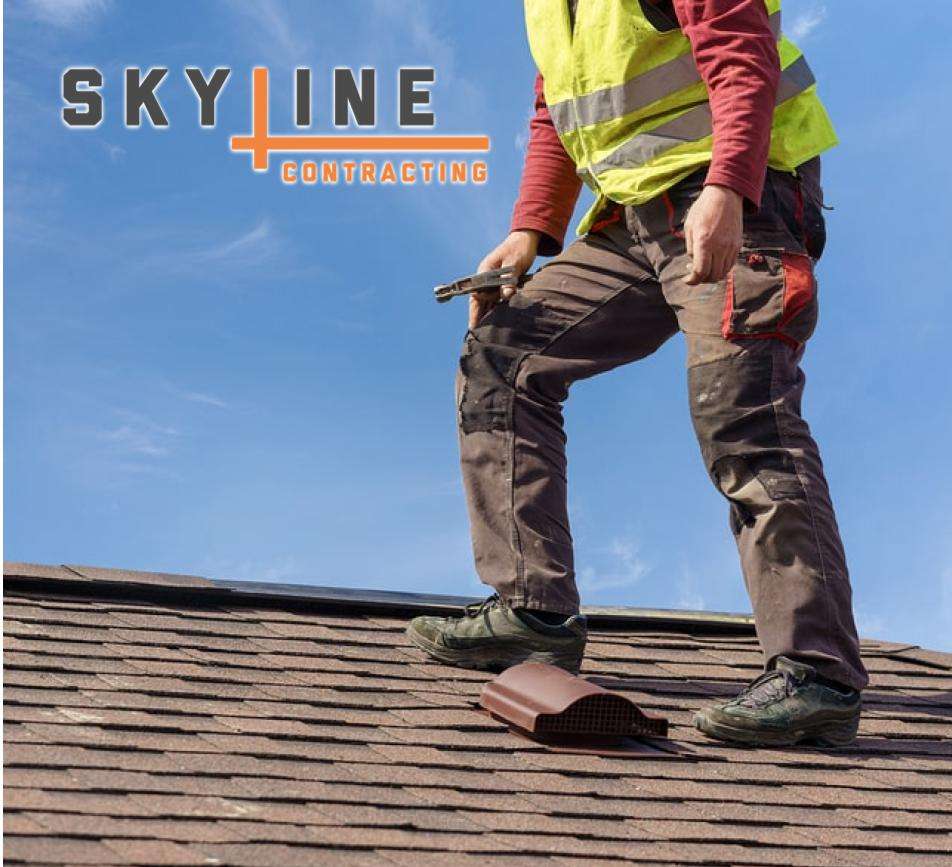Every Homeowner Will Need Residential Roofing Services. Here’s a Full Breakdown
The longer you own your home, the more likely you’ll wind up needing residential roofing services. From storm damage to age and deterioration, many factors will take a toll on your roof over the years. This means it’s important to understand how the various services that residential roofing companies offer can help maximize the lifespan of your roof and keep your home protected from the elements.
As leading Gainesville roofers, our team at Skyline Contracting wants to ensure our customers—and potential customers!—are well-informed when it comes to their roofing options. To that end, we’ve put together a complete, comprehensive guide to residential roofing—so that the next time you call on a roofer, you’ll be fully informed about what’s going on over your head.
What Is Residential Roofing?
Residential roofing refers to any roofing services performed on structures where people live, typically single-family homes (we’ll talk about townhomes in a moment!). In most cases, residential roofing companies will work directly with homeowners to provide services such as roof repairs, replacements, and ongoing maintenance. Some residential roofing companies may also provide services such as cleaning and gutter work, as while these tasks do not fall under roofing per se, they can impact the health of your roof.
Commercial roofing, on the other hand, involves any roofing work done on buildings used for business. This could include offices, stores, restaurants, and more. Commercial roofing systems are very different from residential roofs. Thus, while our team at Skyline also offers commercial roof replacements, repairs, and more, not all residential roofers will also provide commercial roofing services.
Townhomes, condos, and apartment buildings often have elements of both residential and commercial roofing, so it also cannot be assumed that every residential roofing company will provide services for multifamily buildings. This is because apartments and condos may use either residential or commercial roofing materials, and because of the larger scale of these projects.
Residential Roof Types
Residential roofing applies to roofing systems installed on homes. While these roofs typically feature similar characteristics, however, residential roofs can be made from a variety of materials. Let’s take a look at the most common residential roof types.
Asphalt Shingles 
The classic asphalt shingle remains the most popular residential roofing material throughout the United States, accounting for around 75% of all homes. Asphalt shingles remain popular for a few key reasons: they’re highly affordable, durable enough to last 20+ years, and relatively flexible in terms of styles and colors. In addition, homeowners can opt for higher-end products, with many architectural and IR shingle varieties available from manufacturers like GAF and CertainTeed, to better protect their home throughout the life of their roofing system.
Wood Shake 
Wood shake roofs remain fairly popular, though they’ve declined in the US over time. Wood shake can provide protection for your home while creating a more natural and rustic look (and using natural materials as well).
That said, wood shake also carries some significant downsides, notably that it can be difficult to maintain and is not recommended in more fire-prone areas (leading it to be banned in areas of the Western US). When installing these roofs, it’s important to work with an experienced contractor, as they’ll be able to provide a high-quality installation free of common issues, ensuring your home is protected for years to come.
Tile 
Durable, long-lasting, and beautiful, tile is truly an incredible choice for roofing projects. Here in Georgia, where extreme heat is a major part of our climate, tile makes a great insulator to help keep your home cool in the summer. Whether you use clay or concrete, tile also resists nearly every type of damage you can imagine, from fire to high winds to even the largest hail.
Tile roofing requires an experienced expert to install and maintain. Because tile is so heavy, it’s crucial to work with a roofer who can properly assess the load-bearing capabilities of your roof and add reinforcement as necessary. Tile also requires ongoing maintenance, such as replacing the underlayment to ensure the roof is adequately protected against moisture.
All that said, tile roofing can last a family for multiple generations, with tile routinely lasting for 50–70 years—and even well over 100 with proper upkeep.
Metal 
Metal roofing has been steadily increasing in popularity within the residential roofing space, with more homeowners each year opting to switch their roofs over. Metal is a highly durable material and can effectively protect your home from storms while lasting for more than 50 years. Metal roofing is also highly energy efficient, sustainable (as it’s often made from recycled metal), and can help create a “cool roof” for your home with light-colored coatings.
Where previously metal was reserved for industrial and commercial roofing projects, more products have been developed for residential roofing over the years. Metal roofing is now available in a wide variety of shapes, colors, and styles, meaning you’ll be able to create the perfect look for your home.
Roof Inspections: What to Expect

One of the first residential roofing services you’ll likely find yourself needing is a roof inspection. Whether you’ve sustained storm damage or you’re considering a replacement, an inspection will be needed to fully assess your roofing situation. It’s also a good idea to schedule a roof inspection at least once per year to ensure everything is still in good condition.
Here’s what you should expect from a roof inspection:
- Initial property walkthrough – Your roofer will first walk your property and look for any signs of problems that may be visible from the ground. During this time they will likely ask you questions about your home and your roof, such as when it was installed, when it was last inspected, and so on.
- Roof assessment – Next your roofer will examine the roofing system up close. A complete roof inspection will include an examination of the surface material as well as things like flashings, gutters, and common problem areas like roof valleys and penetrations.
- Interior inspection – Looking at the surface of your roof will only reveal part of the story. Your roofer will also need to examine your roof from the inside, such as by checking your attic for signs of trouble. In some cases, roofing problems will only be evident from the inside of your home—or your roofer will find issues (such as poor ventilation) that may lead to problems in the future.
- Documentation & recommendations – Lastly, your roofer will report their findings to you. This should include full photo documentation of your roof (and especially of any issues they found). If issues are found, they’ll provide recommendations on the next steps.
Residential Roof Repairs: When to Repair & When to Replace
If you’ve determined that your roof has been damaged, chances are you’re wondering if you’ll need to replace it—or if a roof repair will address the problem. While you’ll need to speak with a professional roofer to make a final determination, here are a few factors that will affect whether residential roof repair or replacement services will be necessary.
Condition of Your Roof
The overall condition of your roof is a major factor. If your roof has widespread damage, this is much more difficult to address through a roof repair, and often it will be more cost-effective in the long run to replace it. However, if your roof has only minor and/or isolated damage, a repair may completely restore it and fully protect your home.
Age of Your Roof
As your roof ages, it becomes more difficult to repair effectively. This is because structural damage and deterioration will take a toll with time, and what appears to be a surface-level issue could run much deeper. Once your roof is at or near the end of its expected lifespan, it becomes more likely that damage will lead to a replacement.
Your Individual Situation
Of course, the other major factor in making the final determination will be you and your specific needs. For example, you may not have it in your budget to complete a roof replacement immediately, and it may be possible to buy more time through a roof repair. You may want to switch your roof from one material to another (such as from asphalt to metal), even if your roof is not yet at the end of its lifespan.
These types of factors are important to bring to the attention of your roofer so that they can help you make the best decision for you and your home.
The Roof Replacement Process
If you’ve never replaced your roof before, chances are you have a lot of questions about how it all happens. Our team at Skyline Contracting uses a tried and true process that helps reduce headaches and makes for a more streamlined experience for everyone. Here’s how the roof replacement process works.
- Finding a Contractor – First, you’ll need to find the right contractor for the job. The quality of your roof starts with choosing a reliable contractor who won’t cut corners and who will do the job right. We recommend finding local contractors, evaluating reviews, asking for references from past customers, and having a conversation with each candidate before deciding.
- Initial Inspection – Before starting a roof replacement, you’ll need to book an inspection. After all, as mentioned above, in some cases you’ll be able to extend the life of your roof through a repair. The inspection will assess the quality of your whole roofing system, as your roofer will need this information to determine whether they’ll have to replace any parts of the underlying roof structure.
- Scheduling – After working with your roofer to choose the materials and products you want for your home, we’ll coordinate with you to schedule your roof replacement. A roof replacement can be disruptive, so it’s important to us to find a time that works well for your family and causes as few headaches as possible.
- Prep and Tear-Off – Your roofing team will first protect your home before beginning the tear-off process. This is because tear-off is a messy procedure—and the last thing we want to do is cause damage to your siding, your landscaping, or leave debris all over your property.
- Installation – Out with the old, in with the new! Your roofing team will get to work installing your brand-new roofing system. At Skyline Contracting, we work efficiently but effectively, with multiple inspections and checkpoints throughout the process to ensure the job is done right.
- Cleanup & Walkthrough – With your new roof installed, it’s time to show you the results! Your roofer will walk you around the property to ensure your complete satisfaction. Our team at Skyline also removes as much debris as possible and hauls everything away, leaving your property exactly as we found it—just with a new roof!
Skyline Contracting: Leader in Gainesville Residential Roofing Services
At Skyline Contracting, we’re proud to be the first choice of many homeowners when it comes to reliable, high-quality residential roofing services. As a locally based company, we know the ins and outs of roofing in our area, including building codes, common types of threats to be aware of, and much more.
With communication as one of our top priorities, we’ll never leave you in the dark when it comes to your roof. Whether you’re completing a simple repair or a full roof replacement, you’ll always know where to find us with any questions you may have! Reach out today to book an inspection from our team.
FAQs
How much does a residential roof cost in Georgia?
A roof replacement in Georgia may cost anywhere from $8,000 to $30,000. For a more precise estimate, you should discuss this service with a professional roofer.
What is the average roof size in Georgia?
Typically, a single-family home will have a roof ranging from 1,000–3,000 square feet, with the average in Georgia falling right around 2,000 square feet.




